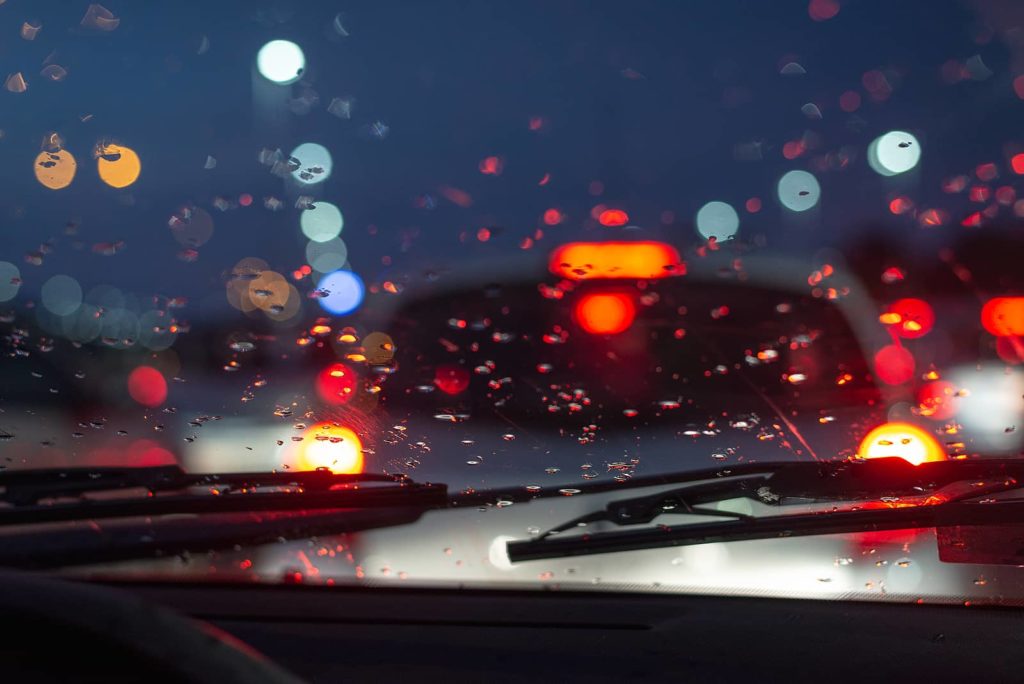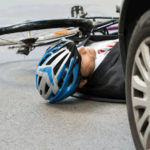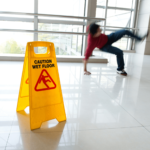- In car Accident

During the winter months, in particular, accidents caused by bad weather are significantly more common. In fact, approximately 21% of all car accidents that occur annually happen because of adverse weather conditions.
Why Does Bad Weather Cause an Uptick in Car Accidents?
To put it simply, operating a vehicle in rain, snow, high wind, or inclement weather is obviously more of a challenge than operating a car on a pleasant summer day. Poor weather conditions can affect visibility and can create dangerous road conditions. Rain is the most troublesome for drivers. Shockingly, rainy conditions cause 46% of all weather-related car accidents.
There are several reasons why rainy conditions and wet roads are so dangerous to drive in, but some of the most prolific causes of rain-related car crashes include:
- Poor Visibility – During rainy weather, visibility can be drastically reduced, making it decidedly more difficult for drivers to see hazards or judge distances between their vehicle and other drivers.
- Hydroplaning – This is a very common cause of rain-related car crashes. Hydroplaning occurs when a vehicle’s tires no longer have any traction due to wet road surfaces, which causes a loss of control of the vehicle.
- Speeding – All too often, drivers don’t understand how dangerous wet roads and rain can be, thus, they don’t adjust their speed accordingly. This can easily cause loss of control, increased chances of hydroplaning, and a higher likelihood of rear-end collisions.
While rainy conditions and wet roads can be perilous, rain is not the only type of inclement weather that can be problematic and dangerous for drivers. Sleet, snow, and ice are also extremely dangerous, although the number of accidents caused by these conditions is less overall since such weather is most prevalent in only a few regions of the United States.
For those in California who do live in areas where there is a chance of snow or ice, ensuring your vehicle is correctly outfitted to deal with these conditions is critical to safety. In fact, ensuring your car is properly equipped with winter tires when dealing with snowy conditions can significantly reduce crash frequency.
While snow, ice, and rain are typically what come to mind when we think of poor weather, there are other forms of inclement weather that can be hazardous. Other weather conditions that are dangerous to drive in include:
- Sleet
- Fog
- Severe Crosswinds
- Blowing Snow
- Blowing Sand
- Heatwaves
Of course, we associate hazardous risk when driving in poor weather to include winter conditions, but often, drivers don’t realize that extreme heat can also cause an increased risk of car accidents. That being said, car crashes in heatwaves are mostly associated with increased driver fatigue, sleepiness, and poor driving performance.
It is also remarkably dangerous operating a vehicle in bad weather when it comes to driving in areas where bicyclists and pedestrians are present. Poor weather conditions can put others who inhabit the roads and pavements in harm’s way, not just those driving a vehicle.
Cyclists and pedestrians can also suffer from decreased visibility, as well as a higher likelihood of slipping or losing traction on roads and sidewalks. Due to these increased hazards, drivers should be extremely vigilant when driving in poor weather in cities, neighborhoods, or other areas where cyclists and pedestrians are also traveling.
Who is Liable in the Case of a Weather-Related Car Accident?
So, it’s clearly determinable that poor or inclement weather conditions are dangerous and considerably heighten the chances of an accident occurring. That being said, the surge in risk doesn’t answer the question of who is liable if a weather-related accident does occur.
Whenever a driver chooses to get behind the wheel of a vehicle, they are taking on a certain level of responsibility to operate that vehicle as safely as possible. With that responsibility comes the expectation that they will maintain control and do everything possible within their power to avoid an accident occurring.
Because it is an expectation and a legal obligation to drive safely, that means that a driver must adjust the way they operate their vehicle during periods of inclement weather or in the presence of hazardous road conditions. This includes reducing speed and taking all necessary driving precautions when the weather is bad.
For example, if there is a downpour of rain and the roads are flooded, driving at the posted speed limit is probably not going to be considered the safe operation of a vehicle under those conditions. It would be expected that the driver should reduce their speed to under the speed limit to compensate for the increased risk that comes with driving in the rain. So, if a driver gets into an accident during heavy rainfall and it’s determined that they did not reduce their speed sufficiently, they may still be held liable, even if they weren’t technically speeding.
When determining liability, a driver’s speeding habits during periods of inclement weather aren’t the only thing taken into consideration. There are several other factors that may be considered to decide if the driver was being negligent or is liable for the accident. These include:
- Failing to pay attention to road signs or traffic laws
- Insufficient or non-existent use of windscreen wipers or headlights
- Distracted driving
- Reckless or dangerous driving
- Operating a vehicle with worn-out tires
- Failing to accommodate for increased stopping time by not leaving enough distance between the driver’s vehicle and the vehicle in front
When determining liability during periods of bad weather or driving in poor weather conditions, the accident and circumstances as a whole must be analyzed. Usually, there isn’t going to be any black and white formula for stating if a driver was negligent or is liable for the damages caused by the accident. If it is determined that a weather-related crash was caused by a driver failing to take proper care and precaution when driving in bad weather, they will likely be deemed liable for the incident.
Remember, in periods of poor weather when driving conditions are significantly more hazardous, driving defensively is particularly important. While you may be taking proper precautions and adjusting your driving habits in line with road conditions, other drivers may not. Defensive driving can help to prevent or lessen the seriousness of a weather-related car crash.
Contact an Experienced Orange County Personal Injury Attorney
For anyone who has been injured in a car accident, it’s important to immediately contact a professional personal injury attorney. The Orange County personal injury lawyers at the Law Offices of Samer Habbas & Associates can then help determine if you have a valid auto injury claim. With multiple offices located in Irvine, Los Angeles, El Segundo, San Diego, and Riverside, our auto injury lawyers represent accident victims across Southern California. For more information or to schedule a complimentary consultation with one of our attorneys, please call 949-727-9300.
Samer Habbas, Esq
State Bar: #243683
Samer Habbas is a California attorney with over 15 years of experience in personal injury law. Throughout his career, he has successfully recovered over $300 million for his clients, solidifying his reputation as a leading advocate in the field.
Samer swiftly gained recognition for his adept negotiation skills and unwavering dedication to his clients. His practice spans a wide range of personal injury cases, including car accidents, dog bites, funeral home abuse, premises liability, and wrongful death.
Samer is known for his compassionate approach and commitment to securing favorable outcomes for his clients. His expertise has earned him the trust and respect of both his clients and his peers within the legal community. He is also deeply invested in giving back to his community. He actively participates in pro bono work and volunteers his time to various charitable organizations. Samer is a champion for those who have been wronged, leveraging his extensive experience and expertise to make a meaningful difference in the lives of his clients and his community.
Recent Post
-
April 15, 2024
-
April 12, 2024
-
April 9, 2024
-
April 8, 2024
-
April 8, 2024












